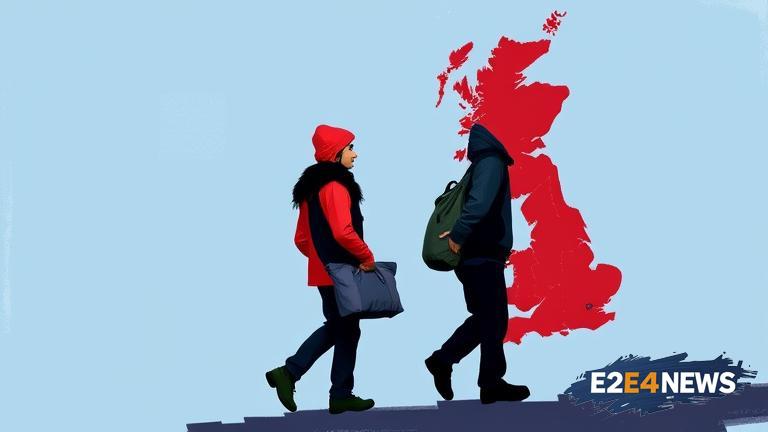The Sunday Times has reported that the UK government is providing a financial incentive of £1,200 to Albanian migrants who agree to return to their home country voluntarily. This move is part of a broader effort to reduce immigration and combat people smuggling. The UK has seen a significant increase in Albanian migrants in recent years, with many attempting to cross the English Channel in small boats. The government is keen to find ways to discourage these journeys and reduce the number of migrants arriving in the UK. The voluntary return scheme is one such initiative, offering migrants a financial incentive to return home rather than attempting to stay in the UK. The scheme is available to Albanian migrants who are in the UK without permission, as well as those who have had their asylum claims rejected. The £1,200 payment is intended to help migrants cover the costs of returning home, including travel and living expenses. The government hopes that this incentive will encourage more migrants to take up the offer and return to Albania voluntarily. The move has been welcomed by some as a humane and pragmatic solution to the migration crisis. However, others have criticized the scheme, arguing that it does not address the root causes of migration and may not be effective in reducing the number of migrants arriving in the UK. The UK government has also been working with the Albanian government to strengthen border controls and reduce people smuggling. This includes providing training and equipment to Albanian law enforcement agencies, as well as sharing intelligence on people smuggling networks. The UK has also increased its support for Albania’s efforts to tackle organized crime and corruption, which are often linked to people smuggling. Despite these efforts, the migration crisis continues to pose a significant challenge for the UK government. The number of migrants attempting to cross the English Channel has continued to rise, with many making the perilous journey in small boats. The UK government has come under pressure to find a solution to the crisis, with some calling for tougher border controls and others advocating for a more compassionate approach. The voluntary return scheme is one part of the government’s response to the crisis, and it remains to be seen whether it will be effective in reducing the number of migrants arriving in the UK. The scheme has been criticized by some migrant rights groups, who argue that it does not provide adequate support for migrants who are returning to Albania. They argue that the £1,200 payment is not sufficient to cover the costs of returning home, and that migrants may face significant challenges in reintegrating into their communities. The UK government has defended the scheme, arguing that it provides a safe and dignified way for migrants to return home. They also point out that the scheme is voluntary, and that migrants are not being forced to return to Albania. The government has also emphasized that the scheme is part of a broader effort to tackle people smuggling and reduce immigration. They argue that the scheme will help to reduce the number of migrants attempting to cross the English Channel, and will also help to break the business model of people smugglers. The UK government has also been working with other European countries to address the migration crisis. This includes sharing intelligence and best practices on border control and people smuggling, as well as providing support for migrant integration and reintegration programs. The migration crisis continues to pose a significant challenge for the UK government, and it remains to be seen whether the voluntary return scheme will be effective in reducing the number of migrants arriving in the UK. The scheme has been criticized by some, but it has also been welcomed by others as a humane and pragmatic solution to the crisis. As the UK government continues to grapple with the migration crisis, it is likely that the voluntary return scheme will be just one part of a broader effort to address the issue.
